ALP BLISS
Bilingual Literature appreciation Student Series (BLISS)
Rationale:
Aligning to the GWPS vision of nurturing pupils to be Motivated Learners, Critical Thinkers and Leaders of Character, and mission of nurturing individuals to be lifelong learners, we have designed a literature appreciation curriculum for our pupils, BLISS (Bilingual Literature ApprecIation Student Series).
- To prepare our pupils to thrive in the fast changing, complex global world, Greenwood Primary School (GWPS) strives to equip our pupils with the 21st century skills to enable them to think critically, examine problems, gather information, and make informed decisions.
- The ALP focuses on creativity, critical thinking, communication and collaboration skills in our school based curriculum.
Philosophy:
Our Primary 1 to Primary 6 pupils use Socratic Questioning and Philosophy for Children (P4C) to develop 21st century skills. In BLISS, we believe that every pupil can think for himself/herself. Every child’s voice is valued.
Through Socratic Questioning and Philosophy for Children (P4C), our pupils have been able to relate children literature to our school values namely, Wisdom, Empathy, Graciousness, Resilience, Responsibility and Open-mindedness. In addition, pupils have been applying reasoning and argumentative skills to construct meaning and opinions linking these to societal concerns in the real world.
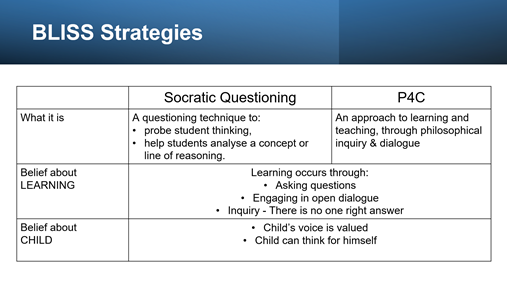
Outcomes:
Pupils are able to appreciate literature to:
- use thinking routines to generate ideas and explore different pathways to an issue /challenge
- use evidence to explain his/her reasoning and decisions
- accept different perspectives, solutions and / or methods, even in the face of uncertainty
- form opinions in relation to the global issues related to Singapore and other countries
- internalise the school values of Wisdom, Empathy, Graciousness, Resilience, Responsibility and Open-mindedness.
Implementation:
The BLISS curriculum runs from Term 1 to Term 3. In the delivery of the lessons, teachers use thinking routines to facilitate discussion based on carefully chosen texts or books. Teachers also use Socratic Questioning and P4C alongside the thinking routines to stimulate pupils thinking, enabling them to see things from different perspectives, evaluate the information and thoughts, and lead them to reflect about their thinking.
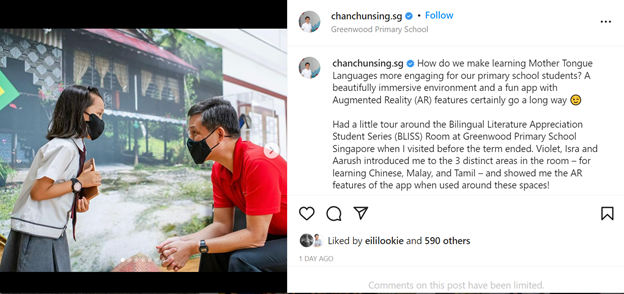
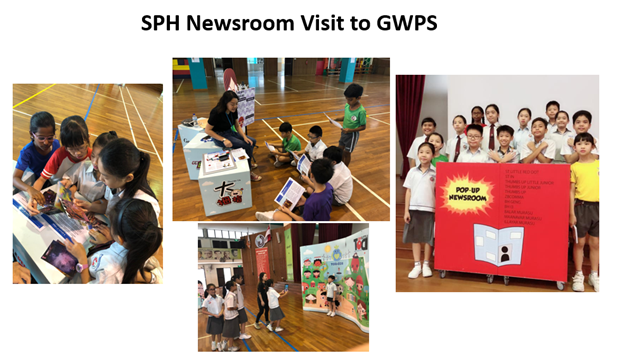
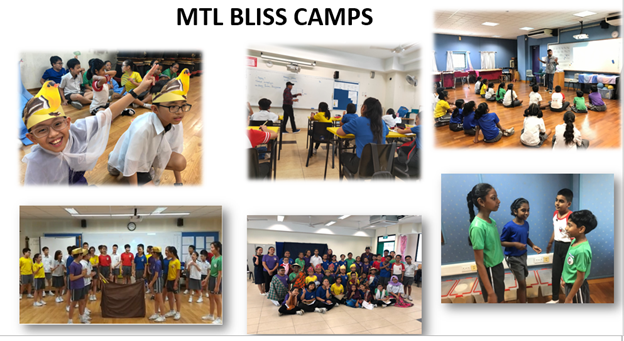
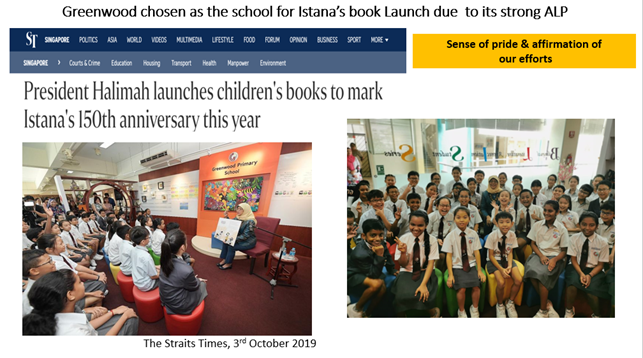
.png)

